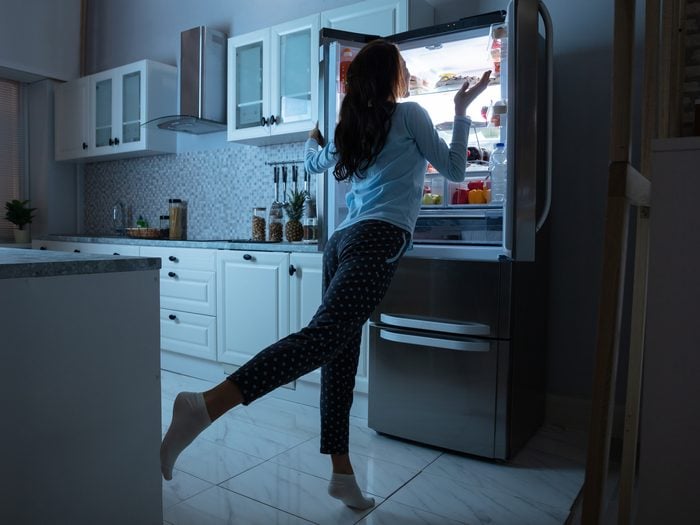
What to Eat Before Bed
It’s after 8 p.m. and you can feel your stomach grumbling. Should you stick it out until morning or head to the kitchen? Nighttime eating tends to get a bad reputation—people often worry it causes weight gain, heartburn, indigestion or all three. But it all depends on what you reach for, says Nishta Saxena, a nutritionist, registered dietitian, and owner of Vibrant Nutrition.
Saxena says there isn’t a clear-cut time of day that we have to stop eating. Studies have found that it’s not when you’re eating, but how much and what you’re eating that matters. Super salty snacks at the end of the day can, for example, make you dehydrated and interrupt your sleep—and they’re not the only culprits that can affect whether you have a good night’s rest.
In general, it’s best to eat small portions before bed. Also try to stay away from foods high in protein or fat, which can be harder for our bodies to digest and can interrupt the natural cadence of our systems, which slow down for the night by producing sleep-inducing hormones like melatonin. Excessive sugar can also act like a stimulant—a bad choice if you’re trying to catch some Zzzs.
Saxena suggests eating something that’s high in carbohydrates, which can promote sleep and help you to relax. This is because carbs don’t require as much blood flow or work from your body to digest, and are therefore unlikely to interrupt your sleep. If you find yourself with an after-dinner case of the munchies, follow these tips on what to eat before bed.
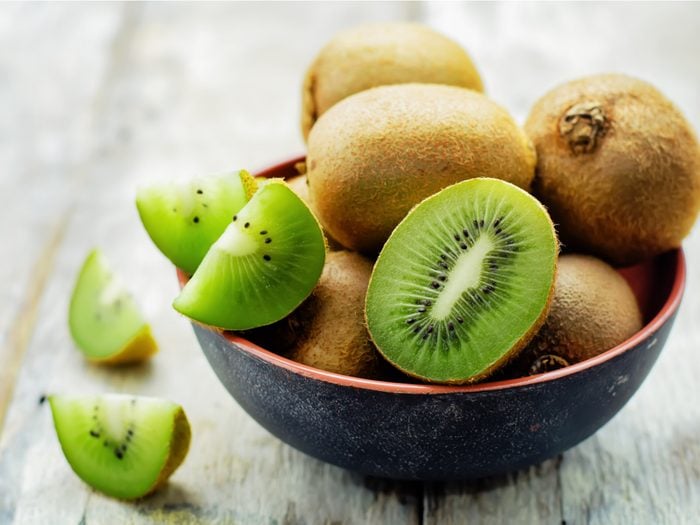
Kiwis
Kiwis can help to promote sleep because they are rich in serotonin and antioxidants (such as Vitamins C and E). Serotonin helps to make you feel relaxed and certain antioxidants have sleep-promoting qualities. Plus, these fuzzy fruits are extremely high in vitamin C and our bodies can digest them quickly, says Saxena. They also support heart and digestive health as well as natural immunity.
Discover eight science-backed ways to boost your immune system.
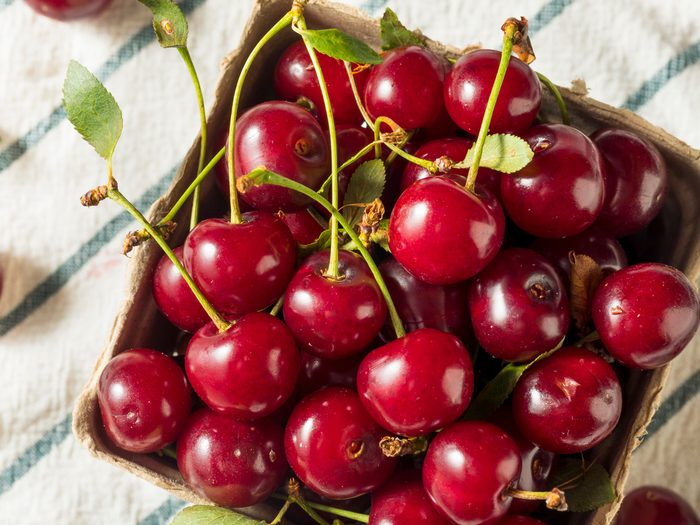
Tart cherries
Tart cherries and tart cherry juice contain concentrated amounts of melatonin, a hormone that helps your body regulate sleep-wake cycles, says Saxena. Studies show that they can help to reduce insomnia, plus they also contain other sleep-inducing agents like tryptophan (a precursor of serotonin). Since tart cherries can be a little bit harder to find than other fruits, Saxena suggests keeping some in your freezer and using them to make a smoothie.
Discover more proven cherry juice benefits.
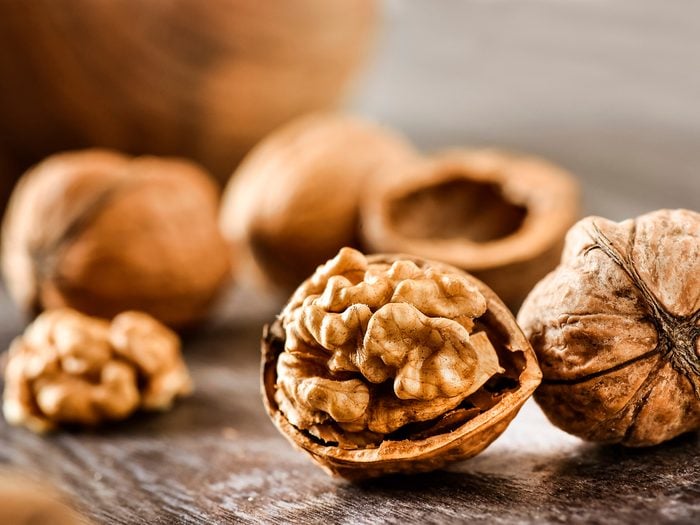
Nuts
Nuts are great for a variety of health benefits, says Saxena, and they’re also a good late-night snack. Just don’t dish out a whole cup of nuts, she warns, because they do contain surprising amounts of protein and fat. In particular, she recommends walnuts and almonds—they contain natural melatonin as well as magnesium, which has the potential to reduce insomnia in adults.
Here are 10 great sleep podcasts worth adding to your playlist.
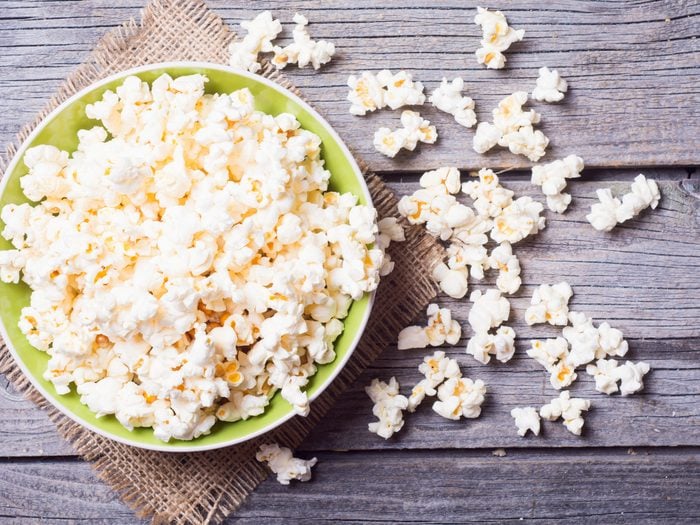
Popcorn
While pre-packaged microwave popcorn most likely contains too much salt to be a good bedtime snack, popping your own can satisfy people who are craving snack foods like chips. Popcorn is also relatively filling—just don’t drown your bowl in butter and salt.
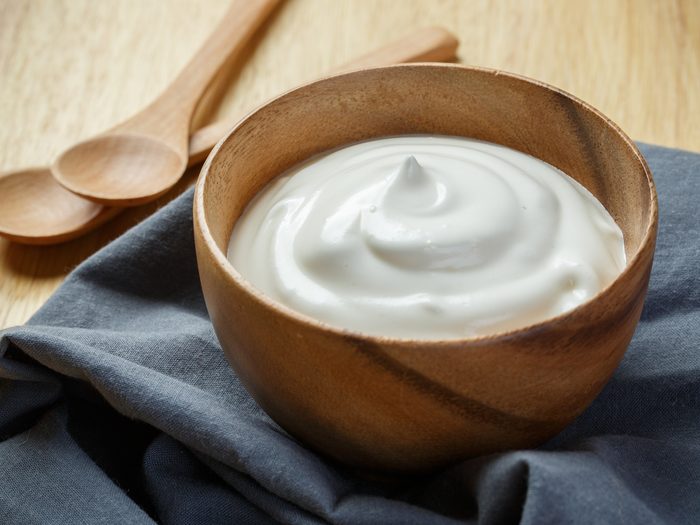
Yogurt
Dairy products, while not consumed by everyone, have a lot of components that stimulate sleep, says Saxena. Something like yogurt doesn’t require a lot of digestive processes, and even full fat yogurt doesn’t have a ton of fat in it, making it easy to digest. Plus, it’s filled with amino acids, like tryptophan, which promote sleep.
Find out why you should always read before bed.
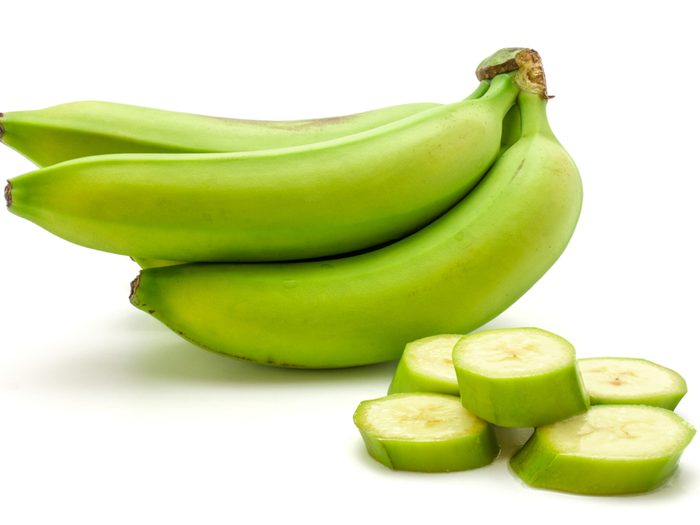
Green bananas
Saxena says a greenish banana, “almost the colour of a tulip stem,” is a great evening snack. At this point, the banana is full of starch, which means it hasn’t yet become sugar, and this can be great for our gut bacteria and also helps to promote sleep. She adds that the banana should be firm and have a tiny bit of yellow in the midsection. If it has black spots, it’s too ripe to help with sleep and won’t provide a benefit.
Here’s expert advice on how to fix your sleep schedule.
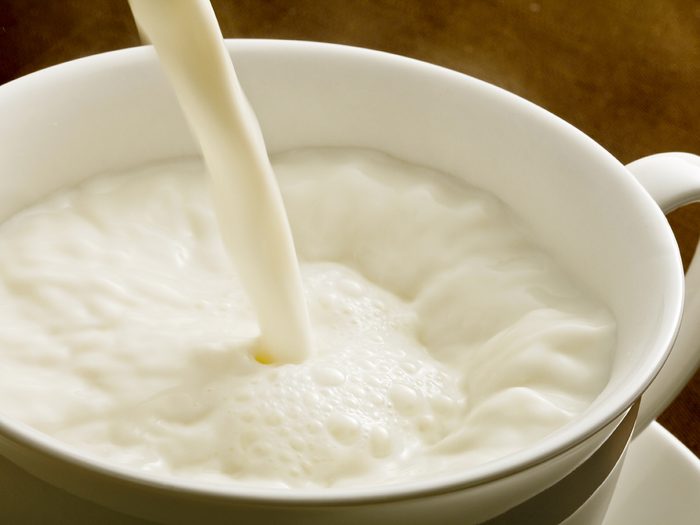
Warm milk
The benefits of warm milk for sleep are well-documented, says Saxena. This is in part because milk contains tryptophan, an amino acid that promotes sleep. Warm fluids in general can relax our digestive muscles. “It can be a self-care moment when you’re having something warm,” Saxena says. “Your hands are wrapped around the mug and it’s a sensory experience.”
Discover more natural sleep aids that really work.
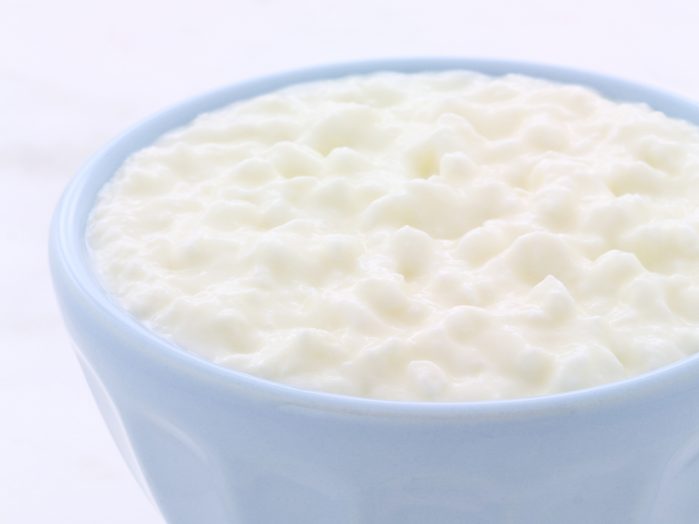
Cottage cheese
While cottage cheese has lots of protein, it also has the benefits of dairy, including amino acids, that help to promote sleep. It’s also nutrient-dense, containing calcium, magnesium, iron, and phosphorus, which are essential for bodily function. It can also be a good late-night snack for athletes, because it’s high in the protein casein, which helps to reduce muscle breakdown overnight. Still, stay away from other cheeses before bed—most are very high in fat and easy to overeat, warns Saxena.
Find out how much sleep you really need, according to science.
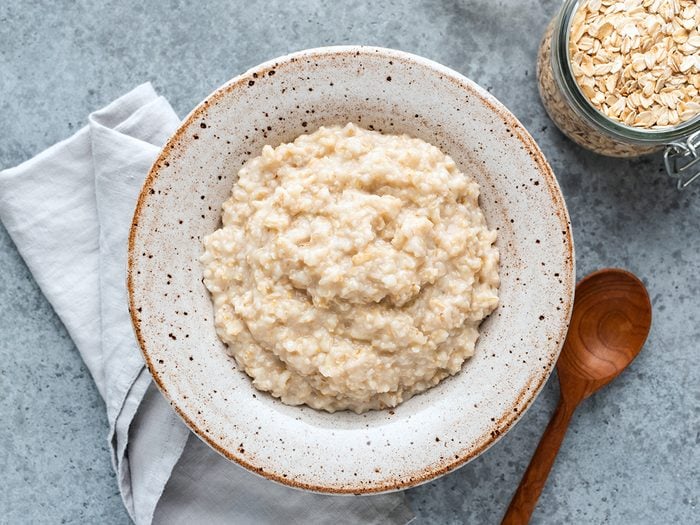
Oatmeal
While people often think of oatmeal as a breakfast food, oats are high in melatonin and so can make a good bedtime snack. Like dairy products, oats also contain the amino acid tryptophan. You can also spice up your oatmeal with many of the other foods that are okay to eat before bed—tart cherries, yogurt, or almond butter, for example.
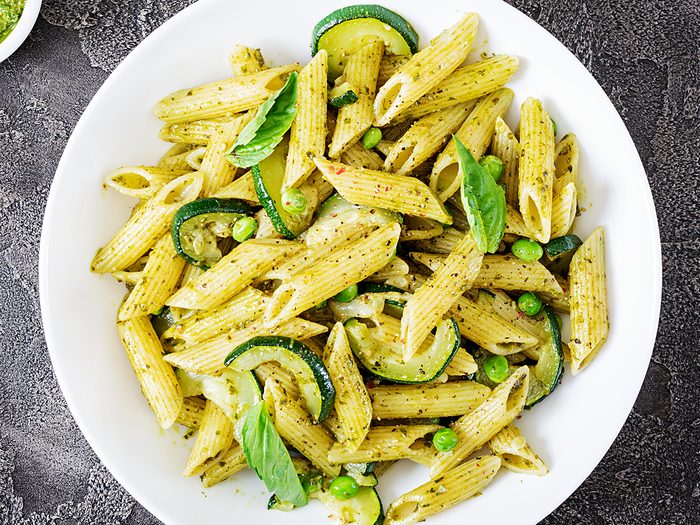
Pasta
If you’re really hungry, try some pasta—but keep the portion small and be careful to not load your dish with toppings that are high in protein or fat. For example, you don’t want to have a super-cheesy meatball pasta before bed, says Saxena. But a small serving of plain pasta with pesto sauce might do the trick.
Now that you know what to eat before bed, follow our ultimate sleep hygiene checklist for quality shut-eye.